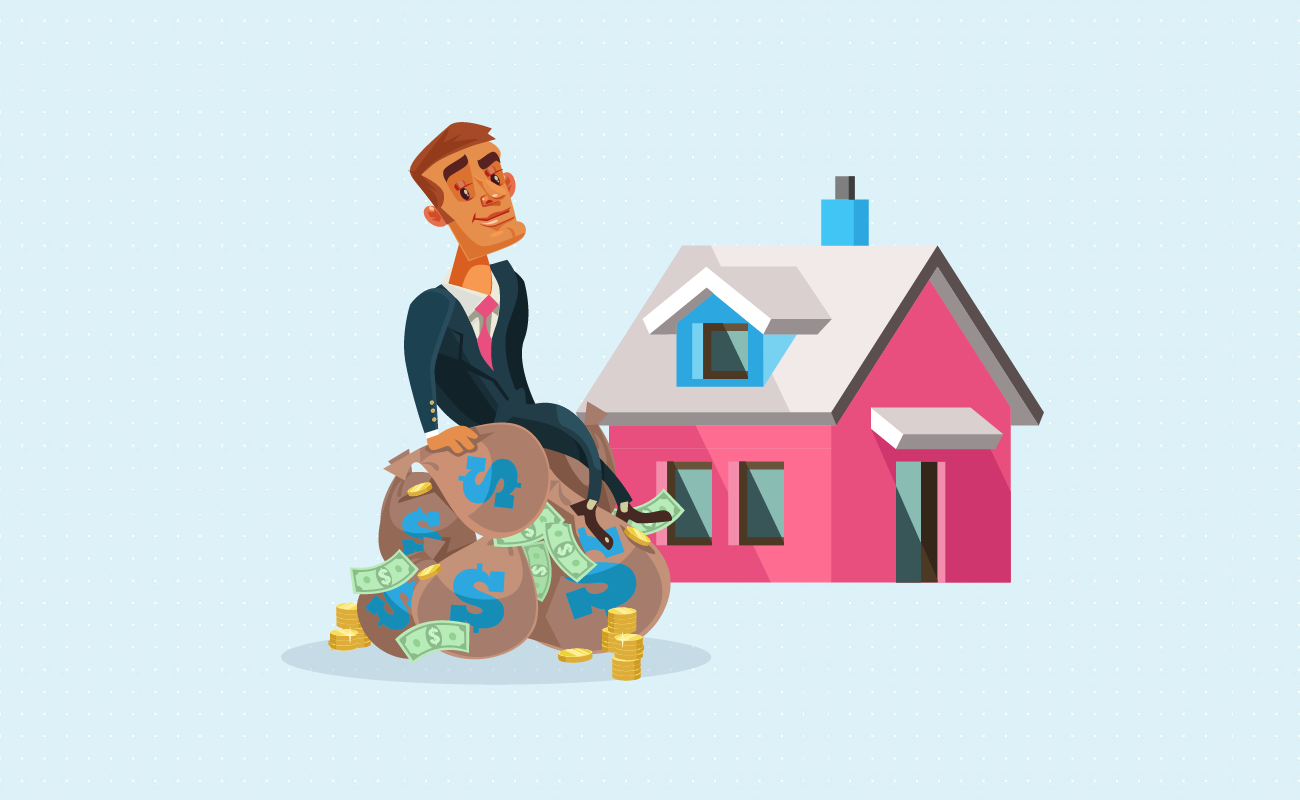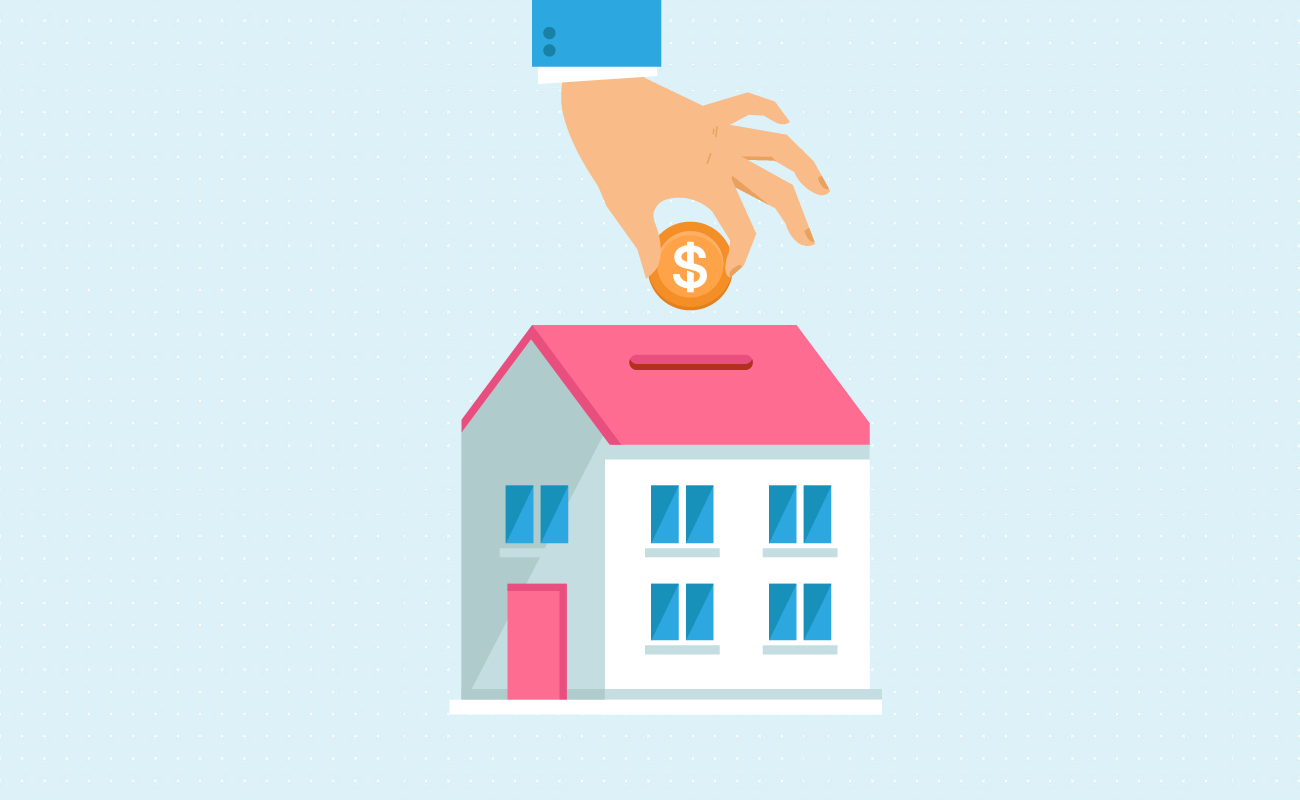Fixed Rates
30 yr
25 yr
20 yr
15 yr
10 yr
Compare Terms
Compare Rates
Real APR
Adjustable Rates
Qualification
Affordability
Renter Affordability
Rent vs Buy
Price per Square Foot
Jumbo
Home Sellers
 Accelerated Mortgage Repayment Calculator
Accelerated Mortgage Repayment CalculatorThis calculator shows homeowners how much interest they will save and how much faster they will pay off their home loan if they make extra payments on their mortgage using any of the following methods:
The calculator will show how much faster each scenario will pay off the loan, how much interest you will save, and how much your investments may return if you put your savings into other investments.
Authored by Jose Abuyuan on July 17, 2020

Going debt-free is one of the big financial aspirations of our generation. The main motivation is always the amount of money you could save if you didn’t need to pay all those bills. Most people are quite content with clearing off major everyday debts: college loans, car loans, and credit card bills.
If you’re committed to achieving a debt-free life, consider taking it one step further. This involves defeating your last major debt: your home’s mortgage.
Mortgages represent one of the biggest major expenses in your life. Clearing it can be a beneficial part of your long-term financial goals. How well this works depends on your financial standing and tax situation.
On the surface, you have everything to gain from paying off your mortgage early. The most obvious perk of early mortgage payment is all the extra cash you now have. That’s money which previously went to an illiquid (if important) asset. You could be using that money for other things:
Another benefit of paying off your mortgage faster is equity building. For several years in your mortgage, most of your payments go toward the interest. It is, in essence, a re-branded rent payment. Principal payments bolsters your home equity. Accelerating your mortgage payments increases your stake in your home.
And while we’re on the subject, let’s talk about interest savings. By paying more of your principal early in your loan’s lifetime, you save more money on interest. The savings are more obvious when you choose a long-term mortgage. Although they’re lighter on your budget, a 30-year loan will cost you more on interest payments. Prepaying a mortgage strikes the happy median. Why choose between low interest payments and low monthly payments, when you can have both?
Paying down your mortgage can provide you with better returns than your investments. Shortening your loan term can yield massive savings in interest. Although the stock market can outperform your mortgage interest savings over time, they come with more risks. Many homeowners don’t have the time horizon to wait these out. Mortgage payments, meanwhile, have almost no risks attached to them.

The growing popularity of going debt-free is a sign of the times. Many millennials came of age during the Late 2000s Financial Crisis. It colored their perception of debt for years to come. Millennials, in general, want to go debt-free. They gear their budgets to pay off burdensome student loans. Most avoid spending with their credit cards.
This has mixed results. On one hand, this fiscal prudence will serve them well for years to come if done properly. On the other hand, an early aversion to debt can hinder their ability to save money. Many millennials pay with cash in exclusion, which doesn’t help them build a good credit rating. This might scuttle their ability to get good interest rates when it’s time to buy a house.

Paying down (“wounding”) a mortgage saves you money on interest payments. Paying off (“killing”) a mortgage does that and increases your cash flow. Of course, few people have the budget for the latter. Visit our guide on our accelerated debt payoff calculator to learn how debt repayments can bolster your cash flow.
Going debt-free is an admirable life goal. But not so fast. Mortgages have key differences to many consumer debts. In many situations, having an outstanding mortgage can have its advantages.
Your tax situation matters. Mortgage payments, regardless of amount, are tax deductible. You can use these and property taxes to lower your income tax burdens. Besides that, mortgage payments can place you in a much lower income bracket. As paradoxical as it sounds, being in debt because of the mortgage can save you more of your money. The mortgage’s exemptions help you hedge against excess tax burdens.
Interest rates can be a fickle thing. If they rise, you might be better off saving your money than paying off your mortgage. If the bank offers 5 percent on your savings, that’s more than what you can save from a 3 percent mortgage.
Fixed-interest loans also provide you with a hedge against inflation. Your money may be worth less over time. Investing that money on assets like stocks preserves their value. Meanwhile, the dollar amount you’re spending on your loans depreciates. You might be paying for your mortgage, but its value has gone down while the rest of your money went up.
If you pay off your mortgage too early, you also risk triggering a prepayment penalty.

High-interest consumer debts such as credit cards are “bad debt” for a good reason. They collect a lot of interest and can bog down your finances for decades. But if you clear them off early, you get rewards points and free stuff. It is ironic that “good debts” come with punishments for early repayment.
Prepayment penalties exist to discourage you from paying off your debts too soon. Now, while this sounds counterintuitive, there is a method to this madness. Mortgages and car loans are designed to last a specific period. The first few years of your loan are the riskiest for lenders. Thus, they get much of their profits from these nascent years. Pay off the loan too early, and your lenders don’t make any money.
In the past, these penalties could be quite punitive. Some lenders could demand up to 3 percent payments for your outstanding balance. This was quite troublesome for people who want to refinance or need to sell their homes.
Before 2014, prepayment penalties could be in effect for up to five years for mortgages. The harshest lenders had them enforced through the entire lifetime of the mortgage. Today, this has been capped to only three years. New legislation also mitigated the extent of their financial impact. They cap at 2 percent of the outstanding balance for the first two years and 1 percent on the third.
Not all mortgage providers slap you with a penalty if you clear your debts too soon. These providers, for instance, aren’t permitted to have prepayment penalties:
Prepayment penalties are allowed only under these circumstances:

Before you sign onto a mortgage, be sure to shop around for the right lender. You can remove one major obstacle by selecting a borrower with no penalties. You can also ask them a quote for a similar loan without a prepayment penalty and compare the results.
You have a head start if you haven’t purchased your home yet. Before you sign, understand how much your prepayment penalties will impact your finances. By law, lenders are required to disclose their penalties. Walk away from any mortgage that has a punitive penalty system.
Fortunately, you can have the penalties waived if you ask your lender. Be sure to check the final contract thoroughly to ensure that their word is in writing. Question or reject terms that sneak in a penalty when they promise to waive it.
If you’ve already signed a loan that has penalties, learn as much as you can about it. Ask your lender if you can make extra payments without incurring the penalty. Many lenders allow you to prepay up to 20 percent of your balance each year without the penalty. By keeping your payments to this amount, you can avoid paying costly penalty fees.
You may also avoid the penalties if you wait them out. Keep your payments below the penalty threshold for the first three years.

Once you’ve decided to accelerate your mortgage payments, you must choose your strategy. There are several ways to pay down your mortgage, each with its own unique advantages.
So, you’ve managed to balance your budget and create a small surplus. One of the best ways to use that money is to earmark it for further debt payments. Set aside some money for a permanent extra payment to your mortgage. This is the standard method of paying down debts. Extra payments are a good option if you have room enough to budget for them. Their main disadvantage, of course, is that you’re paying more each month.
You might be familiar with how extra payments are used to pay off consumer debts. In fact, paying off those debts is often how you free up money anyway. Read our guide on our accelerated debt repayment calculator for more information.
Once you’ve cleared out your consumer debts, your next target should be your mortgage. Inform your lenders that your extra payments should go toward your principal.
Changing the frequency of your payments can also net you a few savings. The most effective way to do so is paying once every two weeks. Biweekly payments map closer to the times people get paid in a month. It can be hard to keep track of them, but they do lower you principal balance and help pay your mortgage early.
Although your habits will suggest otherwise, biweekly does not mean “twice a month.” That would be “semi-monthly.” Biweekly payments do not map precisely to two payments per month. The number of weeks in a year (52) is not divisible by twelve. You are, in effect, paying a month’s worth of extra payments per year.
Thus, your actual biweekly payment would be lower than half your monthly payment. If you paid $1,100 a month, your semi-weekly payments would be around $550. With biweekly payments, it’d be $539.64.
Fortune smiles upon the opportunistic. If you ever find yourself with a large amount of cash lying around, now is the time to use it well. A large lump sum payment can clear out a huge chunk of your balance fast. If you have enough money, you could even pay off all your mortgage in one go.
Where this money comes from can vary. You might get this as a fat tax refund, a garage sale, as game show prizes, or from your savings. Make sure you separate the funds meant for your mortgage fast. You’ll never know when the temptation to spend your windfall would strike.

Avoid withdrawing from your retirement funds to pay for your mortgage. You may need large, hefty withdrawals to cover both your taxes and your mortgage payments. This will eat away at your retirement savings rather fast. Instead, don’t touch the capital and let it compound. Draw your extra payments from your regular or windfall income.
If you’re a bit tight on cash, you can pay down your mortgage with any extra cash you could spare. This can be as small or as large as you can make. It can be extra money from a side business you’ve been doing. Every little bit counts.

Our calculator assumes your main choices are extra payments, biweekly payments, or both. There are ways to incorporate lump sum payments into your payment strategy below. Add them as their dollar equivalent in monthly payments.
Using our calculator above, let’s analyze how each of these strategies would work out. For this example, we’ll assume that you took out a mortgage worth $185,000 with an annual percentage rate of 3.5 percent. Your mortgage has a term of 30 years and costs you around $1,100 every month. Your savings account also has an interest rate of 2.5 percent.
To avoid the prepayment penalty, you begin four years (48 months) after your loan’s consummation. This is where you would start at:
| Full Mortgage Payment | $1,100.00 |
|---|---|
| Mortgage Principal + Interest | $830.73 |
| Years to Pay Off | 26 |
| Interest Already Paid | $24,897.84 |
| Remaining Balance | $170,022.67 |
| Equity After 5 Years | $36,897.56 |
| Equity After 10 Years | $63,003.30 |
Say, you have about $50 to spare for your mortgage payments each month. Let’s see how much you can save between extra principal payments, biweekly payments, or both:
| Current | Current + Extra Payments | Biweekly Payments | Extra + Biweekly | |
|---|---|---|---|---|
| Full Mortgage Payment | $1,100.00 | $1,150.00 | $539.64 | $564.64 |
| Mortgage Principal + Interest | $830.73 | $880.73 | $415.37 | $440.37 |
| Years to Pay Off | 26 | 23.8 | 22.9 | 21 |
| Interest Savings | 0 | $8,813.37 | $11,933.76 | $19,100.40 |
| Monthly Payments Eliminated | 0 | 27 | 36.9 | 60 |
| Total Payment Savings | 0 | $22,429.78 | $30,673.21 | $49,843.96 |
| Equity After 5 Years | $36,897.56 | $40,170.87 | $41,452.24 | $45,001.35 |
| Equity After 10 Years | $63,003.30 | $70,174.93 | $72,986.66 | $80,763.14 |
The shortest time it’ll take to pay off your mortgage will be around 21 years for a spare $50. Let’s look at how much more you’d need to pay through the other options:
| Current | Current + Extra | Biweekly | Extra + Biweekly | |
|---|---|---|---|---|
| Remaining Balance After 21 Years | $45,665.36 | $27,095.33 | $19,787.99 | 0 |
Now, let’s look at the savings and earnings you’ll make:
| Savings | Current | Current + Extra | Biweekly | Biweekly + Extra |
|---|---|---|---|---|
| Average Monthly Savings | 0 | $30.92 | $43.38 | $75.80 |
| Average Annual Savings | 0 | $371.09 | $520.60 | $909.54 |
| Equivalent Interest Rate | 3.50% | 2.77% | 2.67% | 2.44% |
| Investment Returns | 0 | $1,997.84 | $336.81 | $3,153.02 |
You would’ve saved the following amounts after the end of your original loan term (26 years):
| Current + Extra | Biweekly | Biweekly + Extra |
|---|---|---|
| $24,427.62 | $31,010.02 | $52,996.98 |
Adding extra payments through a biweekly payment schedule saves you the most amount of money. Now imagine how much faster you can clear off your loan if you added an extra $100 to your payment? How about $200?
When rates go down, you might be tempted to refinance your mortgage. Refinancing replaces your old loan with a new one. This can help you save a lot of money on interest payments if you do it right. Through refinancing, you reduce either the term of the loan, the annual percentage rate, or often both.
You would often make plans to refinance if you took out a variable rate mortgage. This will allow you to lock in low interest rates while they are still there. This way, you enjoy the benefits of both fixed-rate and variable-rate mortgages.
Refinancing can save you thousands in interest payments. One study shows that people who refinance save a median amount of $160 a month.
We’ll examine how our initial example would’ve played out. Suppose you refinanced your loan with closing costs of $3,050. Your new rate would be 2.5 percent for a term of 15 years. Let’s see how much you’ll need to pay:
| Original | Refinanced | |
|---|---|---|
| Monthly Payment | $830.73 | $1,233.56 |
| Years to Pay Off | 26 | 15 |
| Monthly Payment Change | 0 | $402.83 |
It would take 19 months’ worth of interest savings to offset your initial costs. The main issue with refinancing, of course, is that it is initially more expensive. Not only do you pay closing costs, you also receive an increase in your monthly payments. Refinancing, however, can save you a lot of money:
| Current | Current (Biweekly + Extra Payments) | Refinanced | |
|---|---|---|---|
| Remaining Interest | $114,064.50 | $61,1067.52 | $37,040.81 |
| Savings | 0 | $52,996.98 | $73,973.70* |
*We subtracted the closing costs from your interest savings in this one.
Refinancing can save you the most amount of money. If your budget is tight, making extra payments every two weeks might be the better initial option.

To offset the expensive cost of refinancing, it’s best to refinance when rates are two percentage points lower than the current rate. Some refinance at 1 percentage point lower, but you yield greater savings when it’s much lower. Regardless of your choice, remember to be realistic. There’s no point in choosing an option with more savings if you can’t afford it today. The important thing is to select the method that works for you.
To see how much money you can save from refinancing, check out our guide on our mortgage refinance calculator.
Jose Abuyuan is a web content writer, fictionist, and digital artist hailing from Las Piñas City. He is a graduate of Communication and Media Studies at San Beda College Alabang, who took his internship in the weekly news magazine the Philippines Graphic. He has authored works professionally for over a decade.